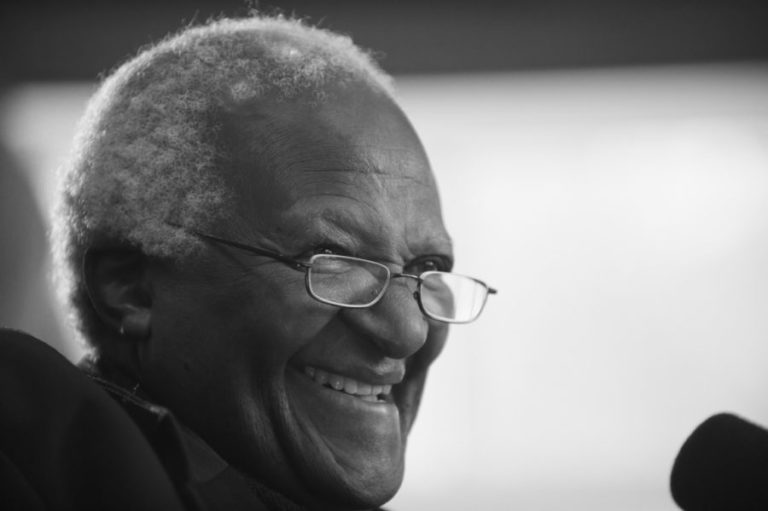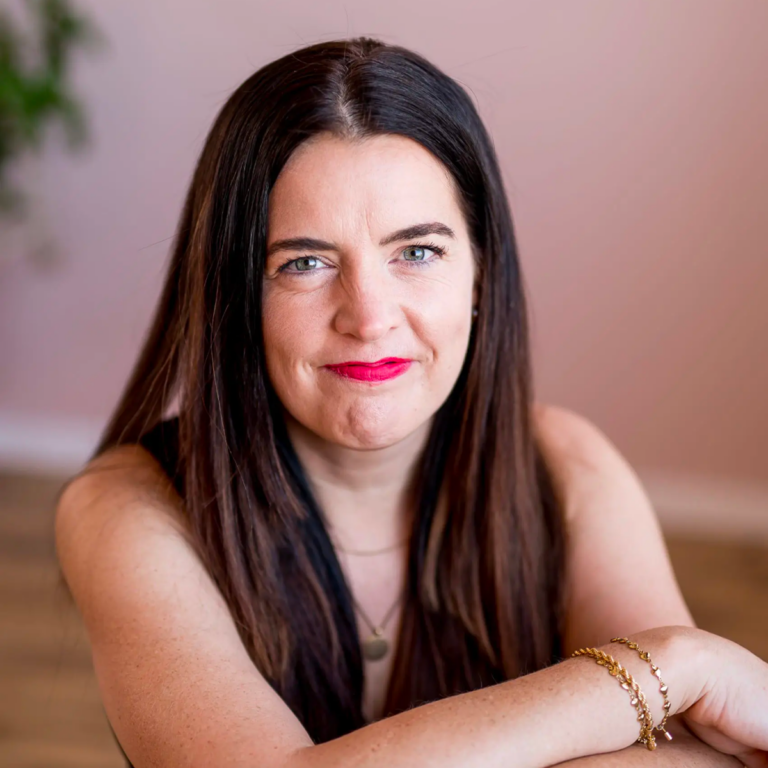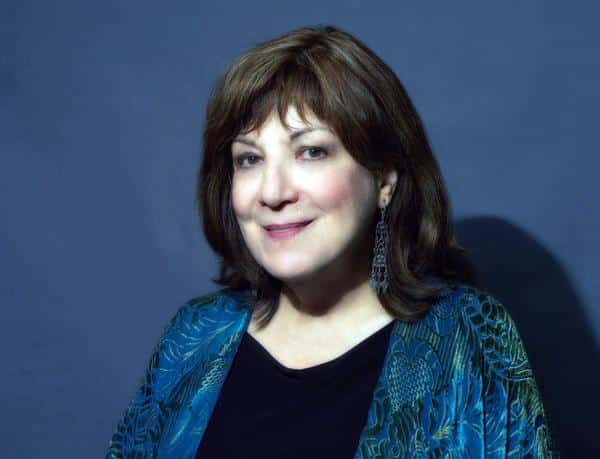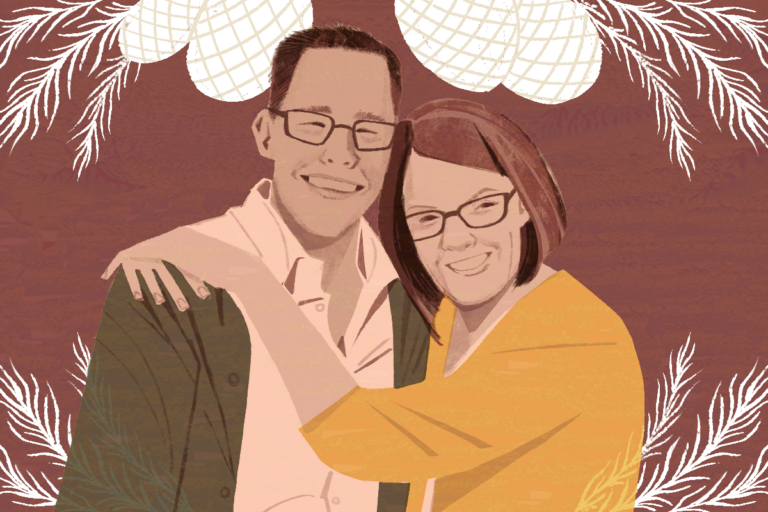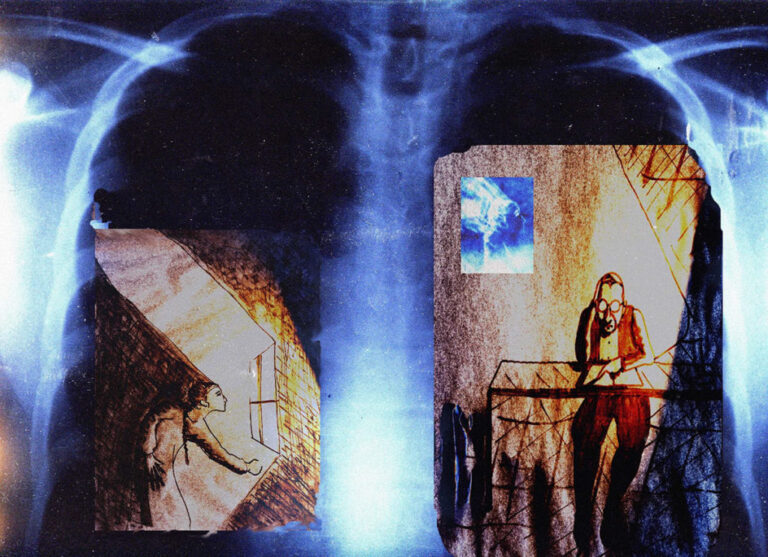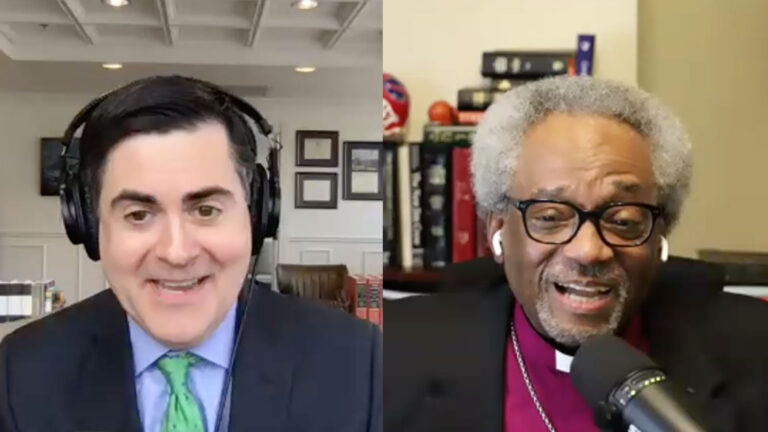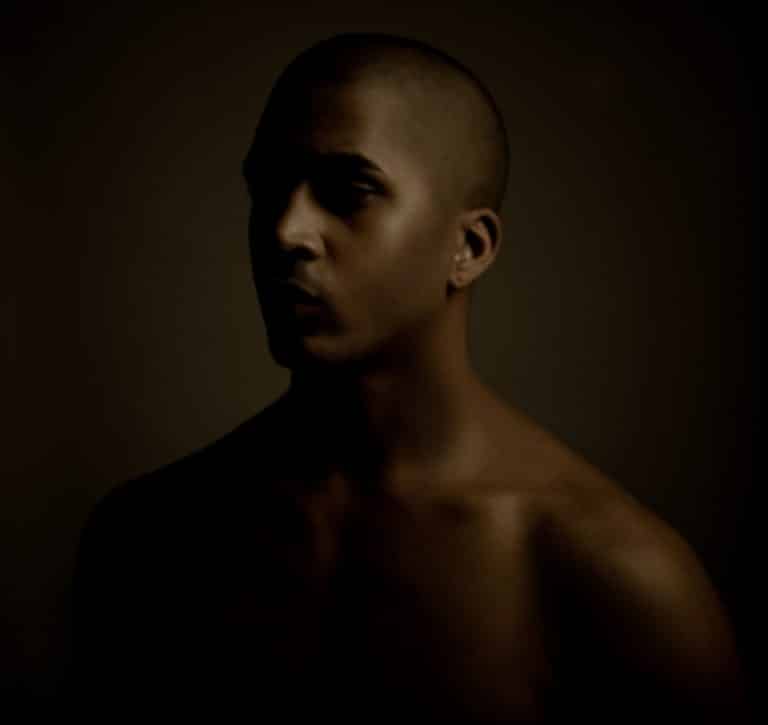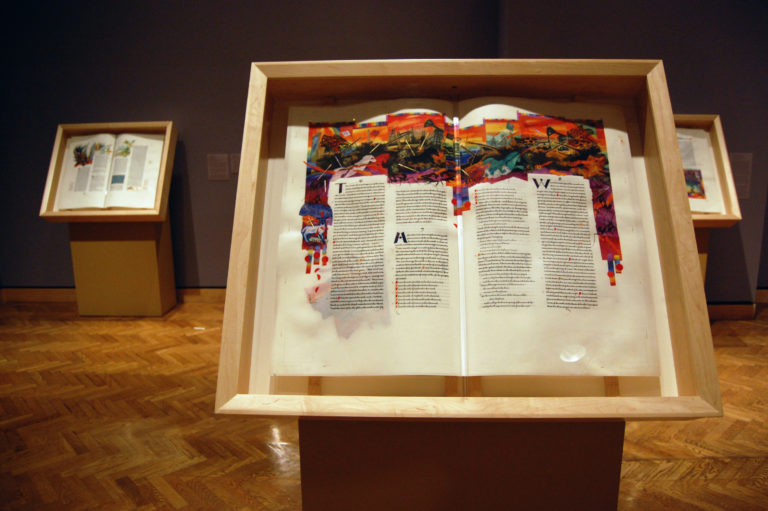The remarkable Archbishop Emeritus of Cape Town and Nobel Laureate died in the closing days of 2021. He helped galvanize South Africa’s improbably peaceful transition from apartheid to democracy. He was a leader in the religious drama that transfigured South African Christianity. And he continued to engage conflict well into his retirement, in his own country and in the global Anglican communion. Krista explored all of these things with him in this warm, soaring 2010 conversation — and how Desmond Tutu’s understanding of God and humanity unfolded through the history he helped to shape.
Bible
Featured Items
“Prayers are tools not for doing or getting, but for being and becoming.” These are words of the late legendary biblical interpreter and teacher Eugene Peterson. At the back of the church he pastored for nearly three decades, you’d be likely to find well-worn copies of books by Wallace Stegner or Denise Levertov. Frustrated with the unimaginative way he found his congregants treating their Bibles, he translated the whole thing himself and that translation has sold millions of copies around the world. Eugene Peterson’s literary biblical imagination formed generations of pastors, teachers, and readers. His down-to-earth faith hinged on a love of metaphor and a commitment to the Bible’s poetry as what keeps it alive to the world.
View
- List View
- Standard View
- Grid View
14 Results
Filters
We love the theologian Kate Bowler’s allergy to every platitude and her wisdom and wit about the strange and messy fullness of what it means to be in a human body. She’s best known for her 2018 book Everything Happens for a Reason (And Other Lies I’ve Loved) — a poetic and powerful reflection on learning at age 35 that she had Stage IV colon cancer.
From a reset on how to think about aging, to the new reality in our time of living with cancer as a chronic illness, to the telling of truths to our young, this beautiful conversation is full of the vividly whole humanity that Kate Bowler singularly embodies.
(Also, as you’ll hear, if she hadn’t become a theologian, she might have been a stand-up comedian.)
Krista and Kate spoke as part of the 2023 Aspen Ideas Festival.
“I like it much better than ‘religious’ or ‘spiritual’ — to be a seeker after the sacred or the holy, which ends up for me being the really real.”
– Rev. Barbara Brown Taylor
From Krista, about this week’s show:
It’s fascinating to trace the arc of spiritual searching and religious belonging in my lifetime. The Episcopal priest and public theologian Barbara Brown Taylor was one of the people I started learning about when I left diplomacy to study theology in the early 1990s. At that time, she was leading a small church in Georgia. And she preached the most extraordinary sermons, and turned them into books read far and wide. Then in 2006, she wrote Leaving Church — about her decision to leave her life of congregational ministry, finding other ways to stay, as she’s written, “alive and alert to the holy communion of the human condition, which takes place on more altars than anyone can count.”
She’s written other books since, with titles like An Altar in the World, Learning to Walk in the Dark, and Holy Envy: Finding God in the Faith of Others. Being in the presence of Barbara Brown Taylor’s wonderfully wise and meandering mind and spirit, after all these years of knowing her voice in the world, is a true joy. I might even use a religious word — it feels like a “blessing.” And this is not a conversation about the decline of church or about more and more people being “spiritual but not religious.” We both agree that this often-repeated phrase is not an adequate way of seeing the human hunger for holiness. This is as alive as it has ever been in our time — even if it is shape-shifting in ways my Southern Baptist and Barbara’s Catholic and Methodist forebears could never have imagined.
You probably know the outline of the Exodus story and its main characters: Moses, the Pharaoh, the burning bush, the plagues, the parting of the sea. And, in another realm of the power of story, the words “let my people go” and the arc of liberation from slavery have inspired people in crisis and catharsis across time and cultures. Call it “myth” if you will — as the Greek Statesman Solon said, myth is not something that never happened. It’s something that happens over and over and over again. Avivah Zornberg walks us through the Exodus story that is relived in the Jewish Passover and resonates through Easter. She is a modern-day master of midrash — the ancient Jewish art of inquiry for discovering the deepest of meaning in and between the biblical lines. What can look simple on the surface, as she reveals, is a cargo of hidden stories that tell the messy, strange, redemptive truth of us as we are and life as it is. Krista and Avivah Zornberg had this lovely, intimate conversation in the early days of this show, in 2005.
“Prayers are tools not for doing or getting, but for being and becoming.” These are words of the late legendary biblical interpreter and teacher Eugene Peterson. At the back of the church he pastored for nearly three decades, you’d be likely to find well-worn copies of books by Wallace Stegner or Denise Levertov. Frustrated with the unimaginative way he found his congregants treating their Bibles, he translated the whole thing himself and that translation has sold millions of copies around the world. Eugene Peterson’s literary biblical imagination formed generations of pastors, teachers, and readers. His down-to-earth faith hinged on a love of metaphor and a commitment to the Bible’s poetry as what keeps it alive to the world.
The remarkable Archbishop Emeritus of Cape Town and Nobel Laureate died in the closing days of 2021. He helped galvanize South Africa’s improbably peaceful transition from apartheid to democracy. He was a leader in the religious drama that transfigured South African Christianity. And he continued to engage conflict well into his retirement, in his own country and in the global Anglican communion. Krista explored all of these things with him in this warm, soaring 2010 conversation — and how Desmond Tutu’s understanding of God and humanity unfolded through the history he helped to shape.
December 23, 2021
Jeff Chu
A Life of Holy Curiosity
In Friendship with Rachel Held Evans
Here we are in a religiously-infused season — and in a world in which more and more of us experience ourselves to be religious nomads, misfits, even refugees. This deep reality of our life together is often simplified in analyses of the decline of traditional religious identity, of the rise of the spiritual-but-not-religious. Yet there is abundantly, alongside all of that, a rising theological and liturgical searching, a passionate calling towards service that echoes the heart of the great traditions. This is nowhere more true than around the boundaries of Christianity. And no person has given more winsome voice to it than Rachel Held Evans, who died suddenly at the age of 37 in 2019. Now her dear friend, journalist and preacher Jeff Chu, has midwifed her unfinished last book, Wholehearted Faith, into the world. He’s Krista’s wonderful conversation partner this hour — articulating a spacious understanding of God and grief, searching and belonging, for this changed world Rachel did not live to see, but speaks to still.
There is a question rolling around even in the most secular of corners: What do religious people and traditions have to teach as we do the work ahead of repairing, renewing, and remaking our societies, our life together? Krista’s conversation this week with Rabbi Ariel Burger, a student of the late, extraordinary Elie Wiesel, delves into theological and mystical depths that are so much richer and more creative than is often imagined even when that question is raised.
December 10, 2020
Bishop Michael Curry & Dr. Russell Moore
Spiritual Bridge People
We’re in a tender spiritual moment, widely feeling our need for re-grounding both alone and together. By way of the Almighty force of Zoom, Krista engages a forward-looking conversation with two religious thinkers and spiritual leaders from very different places on the U.S. Christian and cultural spectrum: Episcopal Bishop Michael Curry and Russell Moore of the Southern Baptist Convention. Through their friendship as much as their words, they model what they preach. The Washington National Cathedral and the National Institute for Civil Discourse brought us all together.
April 16, 2020
Wendell Berry and Ellen Davis
The Art of Being Creatures
In this intimate conversation between Krista and one of her beloved teachers, we ponder the world and our place in it, through sacred text, with fresh eyes. We’re accompanied by the meditative and prophetic poetry of Wendell Berry, read for us from his home in Kentucky: “Stay away from anything / that obscures the place it is in. / There are no unsacred places; / there are only sacred places / and desecrated places. / Accept what comes of silence.”
Walter Brueggemann is one of the world’s great teachers about the prophets who both anchor the Hebrew Bible and have transcended it across history. He translates their imagination from the chaos of ancient times to our own. He somehow also embodies this tradition’s fearless truth-telling together with fierce hope — and how it conveys ideas with disarming language. “The task is reframing,” he says, “so that we can re-experience the social realities that are right in front of us, from a different angle.”
February 2, 2017
Chuck Colson, Greg Boyd, and Shane Claiborne
How to Be a Christian Citizen: Three Evangelicals Debate
To be Evangelical is not one thing, even on abortion. This conversation about Christianity and politics with three generations of Evangelical leaders — Shane Claiborne, Greg Boyd, and the late Chuck Colson — feels more relevant in the wake of the 2016 election than it did when we first recorded it. We offer this searching dialogue, which is alive anew, to a changed political landscape.
What may one of the great literary teachers of Torah and midrash — the Jewish tradition of reading between the lines of the Bible to uncover hidden layers of meaning — teach us about our own human longings? Hear what happens when she takes on Noah and the Flood, and Adam and Eve in the garden.
The Pause
Join our constellation of listening and living.
The Pause is a monthly Saturday morning companion to all things On Being, with heads-up on new episodes, special offerings, event invitations, recommendations, and reflections from Krista all year round.
Search results for “”
View
- List View
- Standard View
- Grid View
Filters
